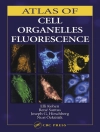This book offers a clinical guide that brings together a broad range of brief interventions and their applications in treating psychosis. It describes two core approaches that can narrow the current, substantial gap between the need for psychotherapeutic interventions for all individuals suffering from psychosis, and the limited mental health resources available.
The first approach involves utilizing the standard therapeutic modalities in the context of routine clinical interactions after adapting them into brief and effective formats. To that end, the book brings in experts on various psychotherapeutic modalities, who discuss how their particular modality could be adapted to more effectively fit into the existing system of care delivery.
The second approach, addressed in detail, is to extend the availability of these brief interventions by utilizing the circle of providers as well as the social circle of the clients so that these interventions can be provided in a coordinated and complementary manner by psychiatrists, psychologists, clinical social workers, case managers, peer support specialists and other providers on the one hand, and by family members, friends, social and religious institutions on the other.
Зміст
Brief Interventions for Psychosis: Overview and Future Directions.- Integrated Pathways of Care for Psychosis: An Overview.- Brief Cognitive Behavior Therapy for Psychosis.- Avatar Therapy for Rrefractory Auditory Hallucinations.- Yoga and Mindfulness Based Cognitive Therapy for Psychosis (Y- MBCTp©): A Pilot Study on its Efficacy as Brief Therapy.- Brief Treatment of Psychosis from a Developmentally Informed Psychoanalytic Perspective.- Application of Motivational Interviewing in Working with Psychotic Disorders.- Brief Family nterventions in Psychosis: A Collaborative, Resource-Oriented Approach to Working with Families and Wider Support Networks.- Recovery Related Brief Interventions for Psychosis.- Employment support for people with psychosis.- Cultural Factors in the Treatment of Psychosis.- Brief Intervention Models in Psychosis for Developing Countries (Asia & Africa).- Policy Implications in Psychosis.
Про автора
Basant Pradhan, M.D. is an academic child and adult psychiatrist, educator, researcher and author. Currently Pradhan serves as the founding director of the trans-cranial magnetic stimulation (r TMS) treatment, and the Yoga and mindfulness based cognitive therapy (Y-MBCT) programs at the Cooper University Health System, Camden, NJ, USA. In addition, he serves as an Assistant Professor of Psychiatry and Pediatrics in the Cooper Medical School of Rowan University. Pradhan had a few years of monastic training before he entered a career in medicine. His clinical and translational research work since 1993 has revolved around his pioneering work on neuropsychological functioning of bipolar disorder and schizophrenia, epidemiology of child psychiatry, Yoga and mindfulness research, and development of new models of treatments that combine cutting edge psychopharmacology with neuro-biologically informed models of psychotherapy. His recent research projects include a study with the National Institute on Aging (NIA/NIH) that examines the efficacy of TIMBER©, a translational mindfulness based psychotherapy designed by him that has been found effective for patients suffering from chronic and treatment refractory post-traumatic stress disorder (PTSD). This work has received the prestigious NARSAD Young Investigator Grant (2015) by the Brain and Behavior Research Foundation, USA. Pradhan has developed seven disorder specific translational Y-MBCT models that cover all major clusters of psychiatric disorders. As described in one of his books with the same title (Y-MBCT, 2014, Springer), these treatment models integrate the concepts of cognitive neurosciences with principles of mindfulness based cognitive therapy and advocate for use of Yoga in its entirety (i.e. all eight limbs including meditation) rather than in piece meal, thus increasing their scope and utility, both as adjunctive and sole modalities of treatment. As of 2015, Pradhan and his colleagues have tested the efficacy and feasibility of these models in multi-ethnic cohorts in India and the US consisting of more than 300 patients. In addition to being a Fellow of the American Psychiatric Association (APA), Pradhan serves as an executive member of the prestigious Group for the Advancement of Psychiatry (GAP) and the National Caucus on Integrative Psychiatry. He has served as a Guest Editor and Advisor to the Editorial Board of some national and international journals. Pradhan has received numerous awards in his career, both in India and the US including the Bronze Medal of the PGIMER awarded by the Honorable Prime Minister of India (2005), national psychiatry quiz championship by the American Psychiatric Association (2009), the Kenneth Gordon Memorial Award (2012) by the Regional Council of Child Psychiatry, and Remarkable Achievement Award of the New Jersey Psychiatric Society (2015). Pradhan has been named several times as a Top Doc for Kids and his workhas been cited by various local and national magazines/ newspapers both in the US and India. He has authored or co-authored over 25 peer reviewed articles, editorials, books and book chapters and has presented his research over 65 conferences at regional, national and international levels.












